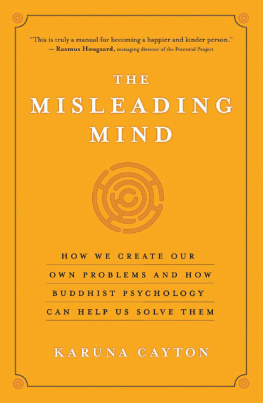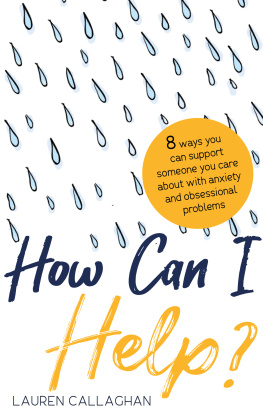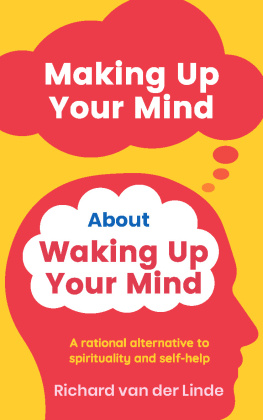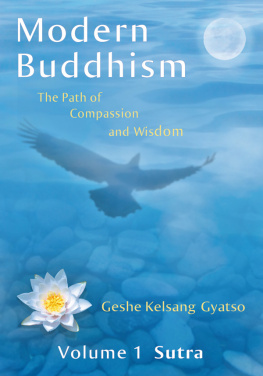
Praise for The Misleading Mind
Readers of The Misleading Mind are in for a special treat. Not only has Karuna Cayton recast the profound psychological insights of the traditional Buddhist teachings in accessible, contemporaneous language, he has illustrated these transformative insights vividly by drawing upon case histories of those he has counseled in his psychotherapeutic practice. His presentation is further enriched by the intimate glimpse it gives of two inspiring masters Lamas Thubten Yeshe and Zopa Rinpoche who embody the compassion, wisdom, and humor that are the hallmark of true mental health.
Jonathan Landaw, teacher and author of
Buddhism for Dummies and Images of Enlightenment
Karuna Cayton has had the very great fortune to be a heart-disciple of two remarkable and irreplaceable Tibetan Lamas. This book distills the essential practices of Mahayana mind-transformation that Karuna has received, cultivated, and taught over many decades. The Misleading Mind shares the profound depth of Buddhist psychological wisdom in a wonderfully inviting and accessible way. I highly recommend it.
Peter Fenner, PhD, teacher and author of Radiant Mind
The Misleading Mind is not another book on how to overcome the challenges of life. It is much more than that. It offers time-tested and practical tools for realizing our incredible potential and working toward becoming fulfilled and happy beings. Karuna Cayton has been immersed in Eastern thought for decades and communicates its psychology and methods in an easy, understandable, and yet profound way. This is truly a manual for becoming a happier and kinder person.
Rasmus Hougaard, managing director of the Potential Project
Through his many years of deep study of Buddhist psychology, sincere introspection, and work at helping others, Karuna Cayton has gained genuine wisdom, which he generously shares in The Misleading Mind. Skillfully integrating ancient wisdom with everyday stories of home and work life, Karuna reveals very practical methods for working with your own mind to discover greater satisfaction and joy in your real life. Like the skilled therapist and wise parent that he is, Karuna doesnt promise quick fixes; rather he provides genuine insights and methods that with sustained effort will bring about meaningful changes. This is a clear, grounded, and useful guidebook for working with the mind and heart.
Lorne Ladner, PhD, psychologist and author of
The Lost Art of Compassion
The Misleading Mind is a self-help manual full of accurate descriptions of traditional Buddhist teachings, recipes for mental health, and a map of the paths leading to a productive and well-balanced life. This wise and thoughtful book will help beginners who know little or nothing about Buddhism take responsibility for their own happiness. Seasoned practitioners of meditation will also find commonsense advice for training and transforming the mind.
Jeffrey Hopkins, professor emeritus at the University of
Virginia and president of the UMA Institute for Tibetan Studies
Karuna Caytons analysis and method in The Misleading Mind are well thought-out and should be a great help to readers. It will help them truly understand what the Buddha said: You are your own guide and your own enemy. It depends on how you use your mind. From this understanding, you can liberate numberless sentient beings. This is the true potential of the mind.
Lama Zopa Rinpoche, spiritual director of the
Foundation for the Preservation of the Mahayana Tradition
THE
MISLEADING
MIND
THE
MISLEADING
MIND
HOW WE CREATE OUR
OWN PROBLEMS AND HOW
BUDDHIST PSYCHOLOGY
CAN HELP US SOLVE THEM
Karuna Cayton

Copyright 2012 by Karuna Cayton
All rights reserved. This book may not be reproduced in whole or in part, stored in a retrieval system, or transmitted in any form or by any means electronic, mechanical, or other without written permission from the publisher, except by a reviewer, who may quote brief passages in a review.
The material in this book is intended for education. It is not meant to take the place of diagnosis and treatment by a qualified medical practitioner or therapist. No expressed or implied guarantee as to the effects of the use of the recommendations can be given nor liability taken.
Text design and typography by Tona Pearce Myers
Library of Congress Cataloging-in-Publication Data
Cayton, Karuna, date.
The misleading mind : how we create our own problems and how Buddhist psychology can help us solve them / Karuna Cayton.
p. cm.
ISBN 978-1-57731-942-9 (pbk. : alk. paper)
1. BuddhismPsychology. I. Title.
BQ4570.P76C39 2012
First printing, March 2012
ISBN 978-1-57731-942-9
Printed in the USA on 100% postconsumer-waste recycled paper

10 9 8 7 6 5 4 3 2 1
This book is dedicated to you, the reader.
Without a reader, there is no book.
And without a book, there is no author.
May all your troubles dissolve into space.
Contents
T o everyone who has ever gone to a therapist, bought a self-help book, consulted an astrological chart, or cracked open a fortune cookie in hopes of finding the answer or key to lasting happiness, The Misleading Mind offers a radical message. There is no key. There is no single answer that can be wrapped in a cookie. However, we can achieve lasting emotional health and happiness if we learn to train our minds. We each have the potential to alleviate our own suffering and embody our most wonderful, authentic self in each and every moment, but only if we learn to master the nasty tricks that our mind by its very nature plays on us. To put it another way, this book is written with the belief that every one of us has the potential to become an Olympic athlete in our mental development, but only if we train with the requisite intensity and drive.
The Misleading Mind offers a powerful approach to our mental health. It takes the basic tenets of Buddhist psychology and methodically explores the nature of our problems and how they take root in our lives. Then, by training ourselves in the use of simple yet effective mental practices, we can gradually learn to identify the unhelpful thought patterns that contribute to our problems and solve them in the moment. We can, in a way, become our own therapists and spiritual guides: learning to study and understand our problems on our own, taking firm ownership over them and transforming them, and, ultimately, translating our new awareness into action in the world.
Next page














